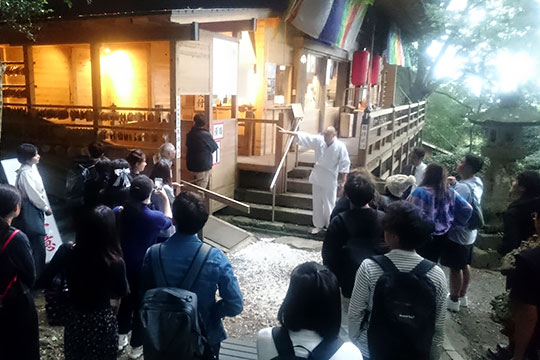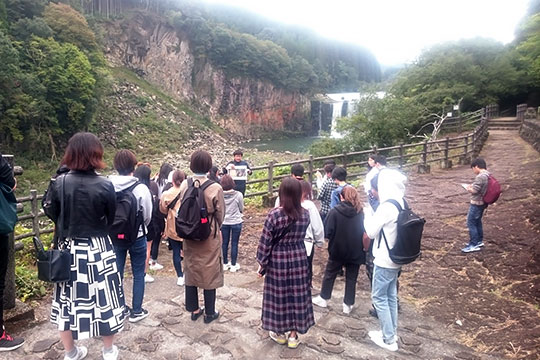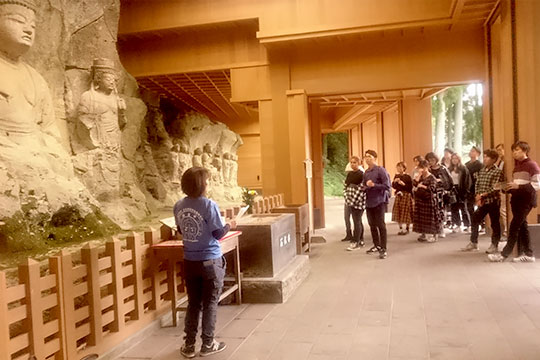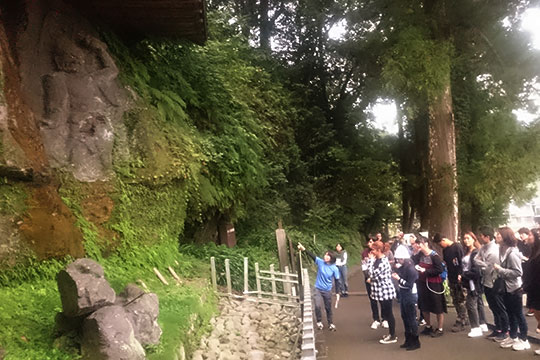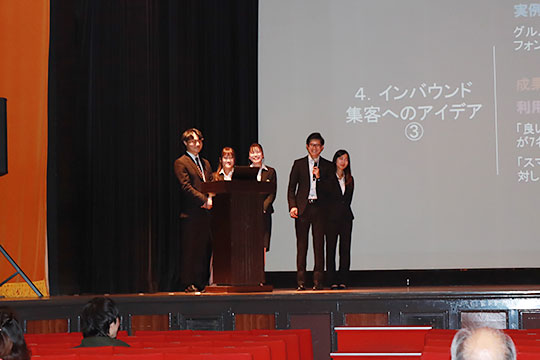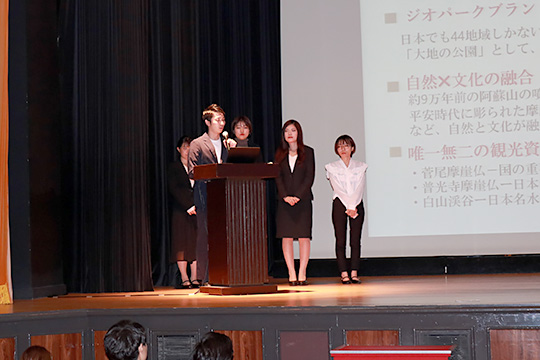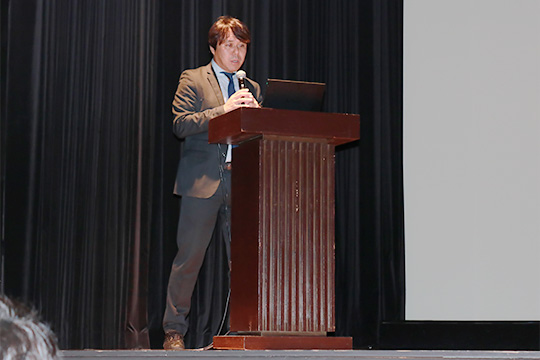APU and Oita Godo Shimbun have been offering cooperative open lectures since they both concluded a comprehensive agreement in the fall of 2017.
In the fall of 2019, the third such cooperative lecture was offered under the title of “Oita Heritage and Community Development.” Taught by APS Associate Professor Takayuki Kubo in cooperation with Oita Godo Shimbun, 37 APU students participated in this program which focused on understanding, leveraging, and publicizing Oita. The students learned about Oita through listening to lectures given by researchers of history, nature, and cultural properties, and participating in field studies while deepening their knowledge of the materials covered in class.
On Wednesday, November 13, the course culminated with student presentations at Beppu City Public Hall. Seven groups of students presented their ideas on community development initiatives utilizing Oita's heritage sites as tourism resources to an audience of local residents.
Comment from Professor Kubo
The other day we concluded the third cooperative lecture with Oita Godo Shimbun in as many years. Of the many classes on offer at APU, this is just one of a handful that receive direct support from a local company. Not only can students receive credits for this class, they also get a chance to visit every corner of Oita Prefecture by chartered bus and hear lectures from experts invited to the APU campus. This is why the class continues to grow in popularity every year. I took this opportunity to consider why it is meaningful for Oita Godo Shimbun to continue providing support for this course. First, many of the students in this class are from parts of Japan outside of Oita and Kyushu, and some are even from foreign countries. Most of these students join this class without having ever visited Oita’s heritage sites or even knowing about them. By listening to lectures, participating in field studies, and giving their final presentations, these students gain an understanding of just how valuable Oita’s heritage sites are and develop a desire to pass this on to future generations. At some point, these students will leave Oita to start new lives in other parts of Japan or other countries, but the memory of Oita’s heritage sites will remain with them forever. Many years down the road, these students will come back to visit Oita’s heritage sites again, and I believe they will identify business opportunities related to these sites. I sincerely hope that with this kind of long-term approach, the benefits of this course will expand far beyond the confines of the APU campus.


